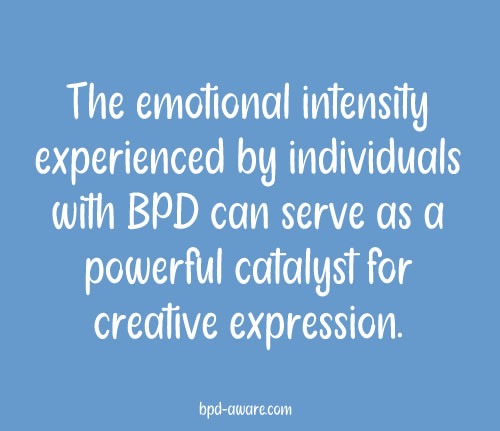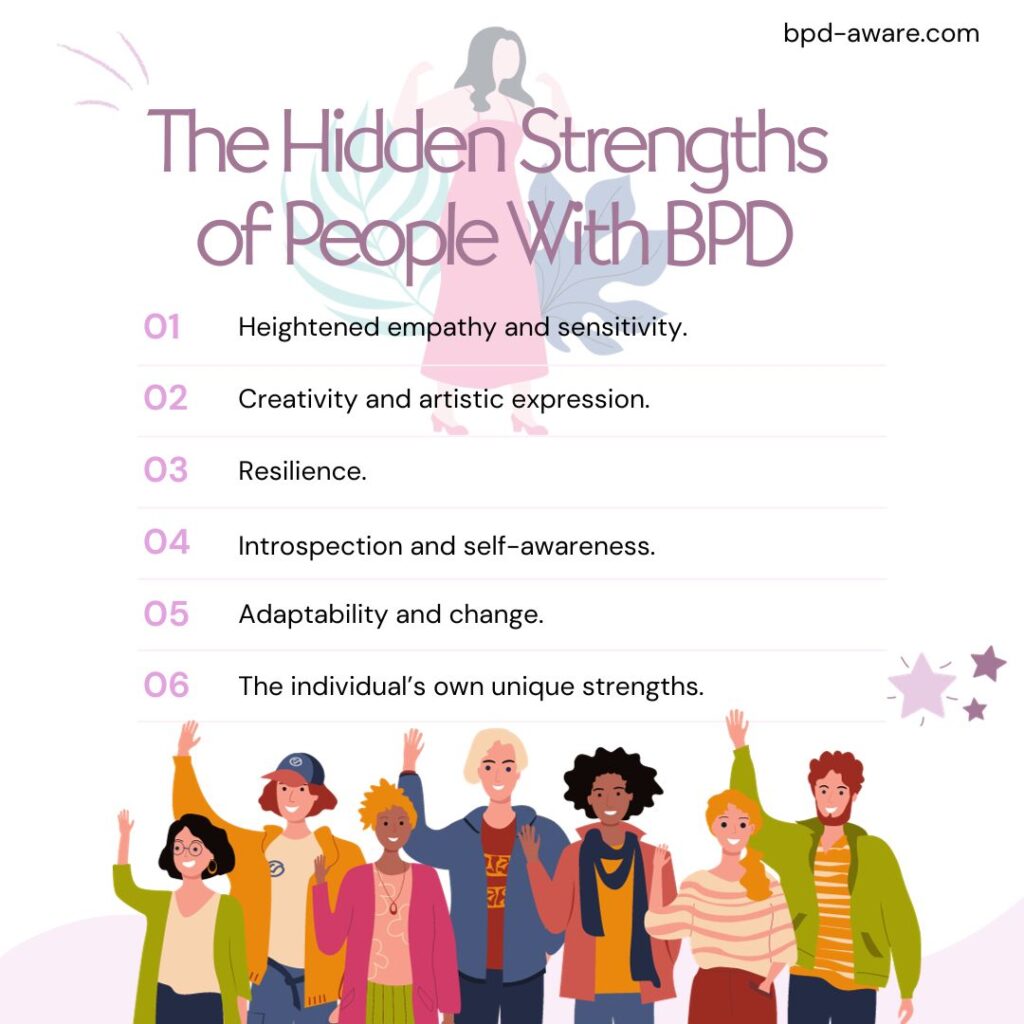While living with BPD presents a unique set of challenges, it’s essential to recognize that people with this disorder can possess hidden strengths and capabilities that can contribute to personal growth, especially once the decision has been made to undergo treatment.
In this article, we explore six of the lesser-known positive aspects of having Borderline Personality Disorder.
1. Heightened Empathy and Sensitivity
People with BPD often exhibit an acute sensitivity to their environment and the emotions of others. While this heightened sensitivity can lead to intense emotional reactions, it also fosters a deep understanding of others’ feelings. Many individuals with BPD develop a profound sense of empathy, making them compassionate and attuned to the needs of those around them. This emotional intelligence can be a valuable asset in forming meaningful connections and fostering understanding in relationships.
In many (but not all) cases, people with BPD have had a traumatic childhood which could explain why they’ve become so acutely aware of others’ emotions. “Feeling” the mood of an explosive personality and when it’s best to avoid them is a vital mode of defense. This can become a maladjusted pattern of behavior.
However, even after successful treatment, people who’ve had BPD are still much more empathetic than the average person. This can lead to rewarding careers in mental health, care work, teaching, and medical fields.
2. Creativity and Artistic Expression
The emotional intensity experienced by people with BPD can serve as a powerful catalyst for creative expression. Many artists, writers, musicians, and performers have channeled their emotional turbulence into their work, producing pieces that resonate with authenticity and raw emotion. The ability to navigate the complex landscape of emotions can fuel a rich and unique creative process, allowing individuals with BPD to create art that speaks to the human experience in profound ways.
Because people with BPD can struggle to express themselves fully with other people, it’s recommended that they find one or more creative or artistic outlets for their emotions. Writing, painting, playing a musical instrument, crafting, digital art, dancing, and photography all are examples of excellent hobbies for people with BPD.

3. Resilience and Strength
Living with BPD requires individuals to navigate intense emotional highs and lows daily. This constant emotional roller coaster can cultivate a remarkable level of resilience. The ability to endure and bounce back from emotional challenges can develop an unparalleled strength. As people with BPD learn to manage their emotions and cope with adversity, they often emerge with a resilience that can be a source of inspiration for others facing difficulties.
This means that people who successfully manage their BPD can go on to become strong leaders or be capable of helping to pick up others who’ve fallen along their way. The level of resilience people with BPD develop can make them virtually unstoppable once they set their minds on achieving a goal – no matter what that goal is. This can be especially powerful and positive to the whole world when it’s combined with their heightened sense of empathy.
4. Introspection and Self-Awareness
Individuals with BPD often engage in deep introspection as they grapple with the complexities of their emotions and identity. This constant self-examination fosters a profound level of self-awareness. Many people with BPD develop a keen insight into their thoughts, emotions, and behaviors, which can be a powerful tool for personal growth. This self-awareness becomes a foundation for therapeutic work, allowing individuals to actively participate in their healing and development.
This means that people with Borderline Personality Disorder can often know themselves, what makes them tick, and how their past has shaped them better than most other individuals. Many people with BPD can struggle with their sense of identity but go on to find themselves in a way that would make other people deeply jealous.
5. Adaptability and Change
Living with BPD often means navigating a constantly shifting emotional landscape. This experience can cultivate a remarkable ability to adapt to change. Individuals with BPD may develop a heightened flexibility and openness to new experiences, as they learn to cope with the unpredictability of their emotions. This adaptability can translate into a capacity for innovation, problem-solving, and resilience in the face of life’s challenges.
It’s not hard to see why this could be such an advantage in someone’s life whether it’s their work life or their personal life. The ability to adapt and change according to the situation and environment can be someone’s greatest advantage and is highly sought after in any profession.
6. The Individual’s Own Personal Strengths
Someone with BPD is so much more than their diagnosis. They’re not just someone who has Borderline Personality Disorder – they’re their own person with their own unique strengths and weaknesses.
They could be a fast learner or an amazing athlete, an amazing listener or passionate talker. Never judge a book by its cover and never judge a person by their diagnosis. You never know what you might just miss out on.

Final Thoughts
While Borderline Personality Disorder presents significant challenges, it’s important to recognize the hidden benefits and strengths that can emerge from this experience. The heightened empathy, creativity, resilience, introspection, and adaptability cultivated by individuals with BPD contribute to a unique and multifaceted set of strengths. Embracing these positive aspects can lead to a more compassionate understanding of the condition and open the door to greater empathy and support for those living with Borderline Personality Disorder.
However, it’s also crucial to emphasize that while these potential strengths exist, they don’t outweigh the significant distress and impairment that BPD can cause. Treatment and support, such as psychotherapy, medication, and a supportive social network, are crucial for people with BPD to manage their symptoms and improve their overall well-being. With support, Borderline Personality Disorder can be effectively treated, leading to recovery and no more need for therapy.
Sources, Resources, and Further Reading
- 5 Positive Traits of People with Borderline Personality Disorder: https://www.annabellepsychology.com/blog/5-positive-traits-of-people-with-borderline-personality-disorder
- The Gift of Borderline Personality Disorder: https://psychcentral.com/pro/exhausted-woman/2020/06/the-gift-of-borderline-personality-disorder#1
- An Unexpected Strength Among People with Borderline Personality: https://www.psychologytoday.com/us/blog/fulfillment-any-age/202203/unexpected-strength-among-people-borderline-personality
- 15 Traits of People With Borderline Personality Disorder: https://themighty.com/topic/borderline-personality-disorder/positive-traits-borderline-personality-disorder-bpd/
















